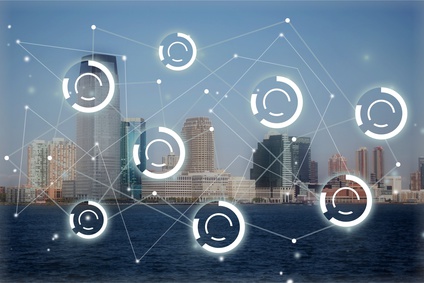Traffic Data Collection Sensors for Intelligent Transportation Systems
Intelligent Transportation Systems are already in use in most parts of Australia and are continuously evolving – often in response to local transport management issues. Accurate traffic data collection enables planners to implement intelligent transportation systems, incorporating new technologies, such as roadside traffic sensors. Although there are several conventional on-road data collection options, they offer limited coverage and have a number of other downsides and limitations. To manage the constant increase in vehicular traffic, therefore, authorities and developers need an accurate traffic management system, especially in urban cities such as Melbourne and Sydney. Taking the discussion forward, in this post, we examine both traditional and progressive technologies used in traffic data collection.
Traditional Data Collection: On-Road Traffic Sensors
Pneumatic Road Tube
Pneumatic road tubes are on-road hollow rubber tube sensors used to collect traffic and speed data. In this process, a number of tubes are placed across the road with one of their ends attached to a traffic counter/classifier. When a vehicle passes over the tube, it exerts pressure on it, triggering the inducer on traffic classifier, thereby recording the count. Usually, five pneumatic road tube systems are used in short-term traffic surveys that last for a week or two. Though tubes are relatively inexpensive than other on-road sensors, they can easily get damaged, which may affect the accuracy of the data being collected.
Piezoelectric Sensors
Piezoelectric sensors, based on the piezoelectric effect, convert mechanical energy, such as pressure, acceleration, temperature, strain, or force into an electrical charge to collect traffic data. Piezoelectric sensors are one of the most accurate options available for measuring axle strike and are typically used for calculating vehicle counts, traffic classification, and speed compliance monitoring.
Induction Loops
Induction loops are one of the most common traffic data collection technologies, used in intelligent transportation system. The loop is a continuous run of insulated wire connected to a vehicle detector. For traffic data collection, several such indicative loops are embedded in roadways through which an electric current is passed, which creates an electromagnetic field. The detector records the count, as the vehicle passes through the electromagnetic field.
Progressive Data Collection: Road-Side Traffic Sensors
Acoustic Traffic Sensors
Acoustic traffic sensors collect traffic data by identifying the vehicle noise; more precisely, the tyre noise. It also measures the vehicle speed across multi-lane roads, even in high-traffic conditions. According to several independent studies, acoustic sensors provide an accurate traffic count, even if the speeds of vehicles vary with a notable margin. In addition, acoustic traffic sensors represent an economical alternative to conventional on-road sensors, especially in areas where road and traffic conditions limit on-road sensor service life.
Microwave Radar
Microwave radar also referred as Doppler radar uses radio frequency waves to measure traffic flow rate including the vehicle class (Doppler effect). The advantage of using microwave radar is that it can be operated at a high-frequency wavelength, irrespective of the climatic conditions. Whereas the downside is vehicle occlusion – it may miss a vehicle due to partially or completely occluded by a larger vehicle closer to the detector.
Video Image Detection (VID)
Video Image Detector is another notable development in the field of traffic data collection. It is an advanced traffic surveillance system that processes inputs from a video camera to monitor traffic in real-time. Though it is one of the latest methods for traffic data collection, the vehicle classification feature is limited to daylight hours, unless the recording site is well lit.
Summing It Up
Data collected from road sensors can be used in active network management, network planning, and as traveller information. Having access to real-time traffic data not only improves traffic management, but also helps satisfy the growing demand of drivers to have access to accurate and reliable traffic information. If you need traffic data collection in Sydney, Melbourne or surrounding areas, EB Traffic Solutions has got you covered. We specialize in providing advanced traffic engineering solutions and data collection services, leveraging the latest methods and technologies. To learn more, call us at 0408 395 729 or fill out our contact form and will get back to you, shortly.








